John and Matthew watched every single live-action film starring Meryl Streep.
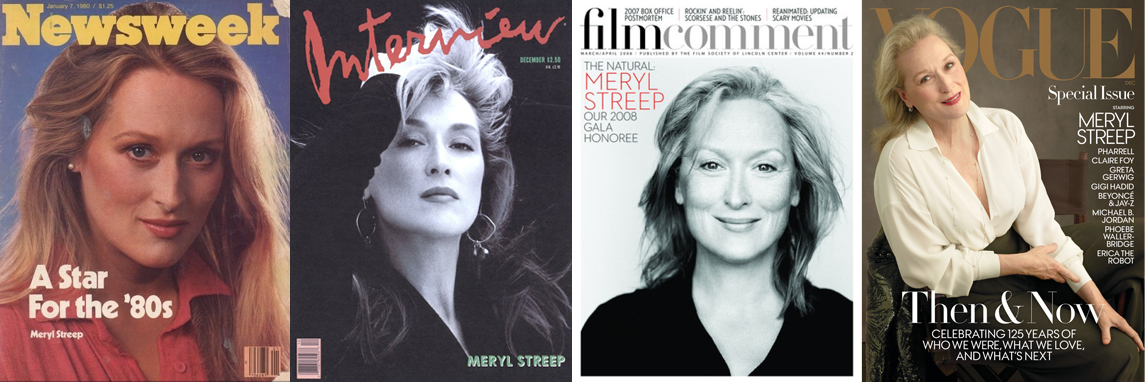 Meryl has been a superstar for 40 years now
Meryl has been a superstar for 40 years now
MATTHEW: You never forget the performers who first reach out to you from an illuminated screen and lay claim to your gaze, mind, and devotion. Before I knew anything about the art of screen acting, I knew about the miraculous and almost mythic marvel that is Meryl Streep. Months of Meryl was an undertaking that exhausted and aggravated me without end: for every unparalleled Silkwood in Streep’s filmography, there are at least two The House of the Spirits; for every forgotten or underrecognized gem like The Seduction of Joe Tynan, One True Thing, or A Prairie Home Companion, there are at least three Still of the Nights, Primes, or Dark Matters. But, more importantly, this project illuminated a great deal about a veteran artist whose empathetic interest in the lives of others moved me at such an impressionable age and will never cease to do so.
Watching and writing about Streep’s films side by side by side for well over a year has not taught me a single overarching lesson, but only deepened my appreciation for her mastery...
It's made me fully aware of the creative risks Streep has taken throughout her four decades in the industry as well as the risks I wish she had taken in lieu of some considerable compromises and sheer wastes of time. Then again, this series has made me rethink the consensus that the ongoing, latter-day era of Streep’s career is a fruitless and risk-averse period for an actress frequently accused of lingering in her populist comfort zone. In films like The Devil Wears Prada, It's Complicated, Hope Springs, August Osage County, Ricki and the Flash, Florence Foster Jenkins, and The Post, I see a performer diving into her art with a frisky and fearless sense of adventure, her imagination undiminished, her emotional availability continuing to stand the test of time. Streep may not always be cast in films that deserve her brilliance, but her very presence remains a one-way map connecting her sparkling and soulful creations on the screen to the heart of the viewer who will return time and time again to watch and wonder anew. What say you, John?
JOHN: This project began almost two years ago, before The Post had even been announced, when I idly began listing of all of Meryl’s films, an impetus to fill in those gaps between nominations and popular hits. When The Post appeared as #52 on the list, the idea of a weekly challenge proved irresistible. I remember asking you if we should do it while knowing full well that you could not say no.
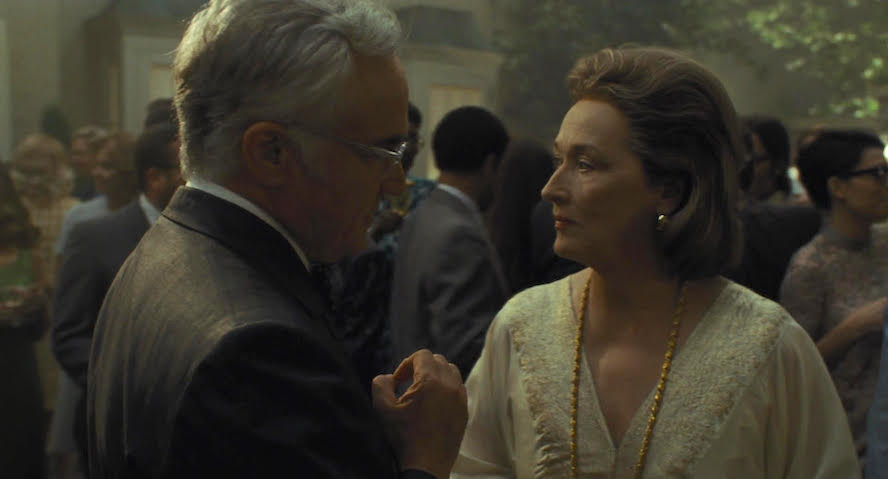
Trekking through Streep’s filmography felt religious, like making a pilgrimage or studying scripture. It was often like going to gym: boring and tiring but sometimes completely stimulating. Close-ups have accumulated in my memory; pages of line readings are imprinted on my mind. Mostly, though, watching all of Meryl’s feature films tempered my fervent and guileless idolatry; Meryl Streep is not perfect, but who cares? Even when she sometimes “fails,” you see another, better version somewhere on the horizon. Even as we regret her seemingly risk-averse project choices, grappling with her reasoning behind even middling fare like Mamma Mia! or The Iron Lady or Suffragette makes her career-long commitment to representing women’s stories all the more admirable. Gleaning her imperfections, banalities, and bad decisions somehow only illuminates the glow of her genius, the full dimension of her humanness. Truthfully, I find joy in some of her most misjudged performances, while door handles, orchids, dingos, cerulean, buying the flowers myself, caftans, accents, and face-touches only grew more iconic, indelible, and savory with repeated viewings. Meryl is the gift that keeps on giving; she doesn’t have to do another damn thing, but of course, she’s still going.
I’ve always felt that something gets lost in the title of “Best Actress of All Time.” The praise can become a burden, inviting either easy, contrarian haranguing or oblivious worship. It’s an impossible title for a near-70-year-old woman still working in whatever constitutes “Hollywood” in 2019 to claim, much less hold on to. It also often ignores that Streep has continued to challenge and improve her abilities long after she first earned that title; recent performances in The Post, August Osage County, Hope Springs, and It's Complicated are just outside our top ten. Here’s to even more Streepian brilliance in the years to come, and to the treasures we’ll have now and always. Thanks for reading.
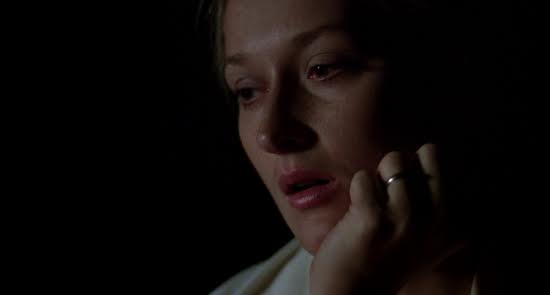
10. Kramer vs Kramer (1979)
“In the same year as Sally Field raising up that iconic ‘UNION’ sign and Jane Fonda bracing her own anguish to go on with the newscast in The China Syndrome’s final moments, Joanna Kramer’s briefly-glimpsed self-discovery might feel harder to root for but no less important to examine. Streep’s tender but tough-minded performance may have augmented her own ascendancy, but it also ensured that a credible feminist perspective would not be cast aside in Kramer vs. Kramer — a victory of equal and deserving importance.”

09. The Devil Wears Prada (2006)
“Streep’s performance is an extraordinary recuperation of the harridan, unemotional female authority archetype and a corrective to entrenched cultural beliefs that powerful women are heartless bitches. Streep almost single-handedly rewrites Miranda away from the vindictive, power-mad boss from hell, depicting her instead as a powerful woman at the top of her game with no time or patience for anything less than the high standards she keeps for herself and expects of her underlings.”

08. The Deer Hunter (1978)
“‘Oh, Michael’ is such a simple exclamation, but the ways in which [Streep] utters it — first with breathless shock then again with crying and unrestrained affection — gorgeously endow it with all the profundity it needs. In Streep’s mouth, these words soar. Her face becomes a porous map of Linda’s inner emotional workings: relief and elation seem to rise up from the center and then part like two diverging waves until they ultimately encompass the trembling whole. In this single moment and in her entire performance, Streep, still a relatively untested film actress at this point, gives bountiful detail and masterfully-calibrated dynamism to a woman who, by all accounts, she never really respected.”

07. The Hours (2002)
“‘I’m sorry, I seem to be in some strange sort of mood. I seem to be unraveling,’ she admits. There is nothing misplaced or extraneous in Streep’s performance here; every gesture, look, and movement is completely in service of Clarissa’s breakdown, as opposed to an opportunity for the actress to writhe or sob for the sake of going big. Clarissa resents how Richard has made her feel trivial, but Streep doesn’t render Clarissa’s crisis as trivial in the slightest. Instead, Streep’s performance feels genuinely frightening and unmanageable, steadying herself on her kitchen counter and sinking to the ground in tears, under assault by her sadness.”
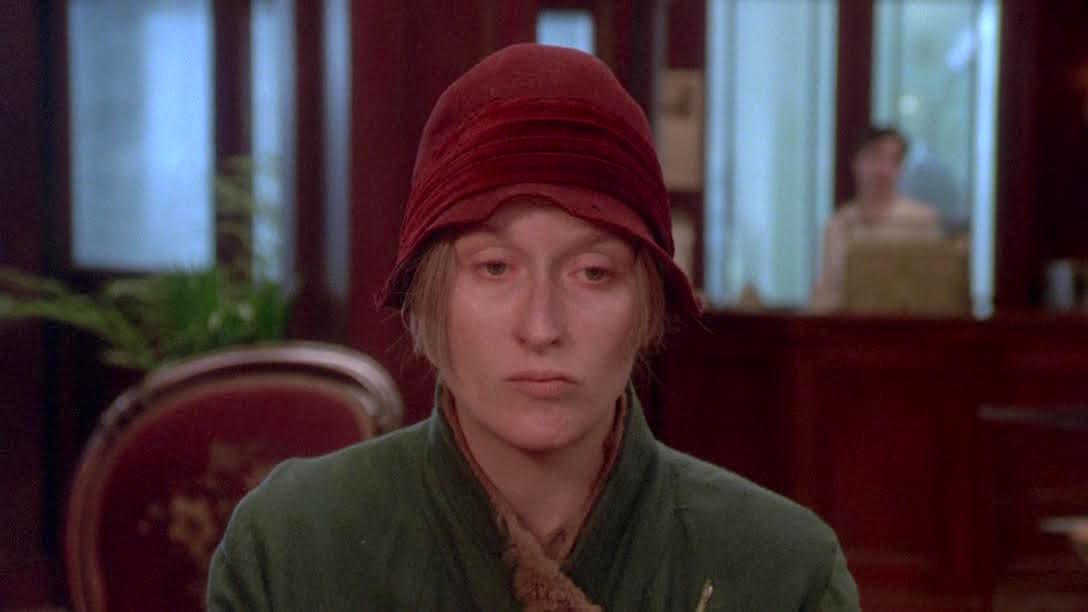
06. Ironweed (1987)
“Streep doesn’t fully dig into the character’s psychology, boldly leaving such qualities as Helen’s petty jealousies and dependence on drink underexplored, treating them like the facts of life that they are, rather than curable afflictions. There are no cures in sight for the things that ail Helen. Streep understands this and stakes her distance early on, refusing to moralistically play a case study, as opposed to the coarse, aching, flesh-and-blood human being known all too briefly by those watching and living with her. That tragic unknowability is truly the key to Streep’s achievement, which is ultimately more impressionistic than immersive.”
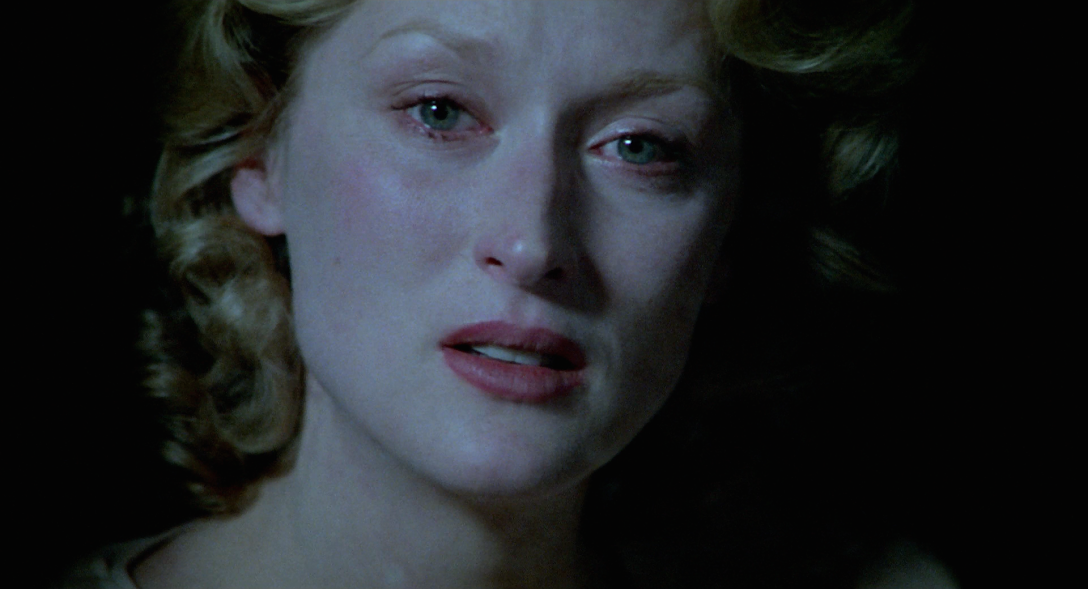
05. Sophie's Choice (1982)
“And then, of course, there’s The Choice. Whatever your opinions of Sophie’s Choice, it’s impossible to deny that this is one of the most jolting and indelible scenes in American cinema, an undertaking made possible by the unflinching clarity of Streep’s emotional responses, which make the shock of this loss not only register but ache. The experience of watching it has somehow remained the same. The critical distance imposed between myself and the film during its first two hours utterly evaporates. Its misjudgments fall away and there is only Sophie, which is to say there is only Streep, who is at once ever-present and invisible as the scene escalates, an actress inextricable from the character and her calamitous fate. But I don’t marvel at Streep’s all-encompassing technique or feel the slightest urge to evaluate any particular choices. I just witness. And, in my mind, this scene is where the movie rightfully ends, with the blanched, open-mouthed devastation of a mother, forced to endure an unspeakable tragedy that belongs to nobody but her and her extraordinary interpreter.”
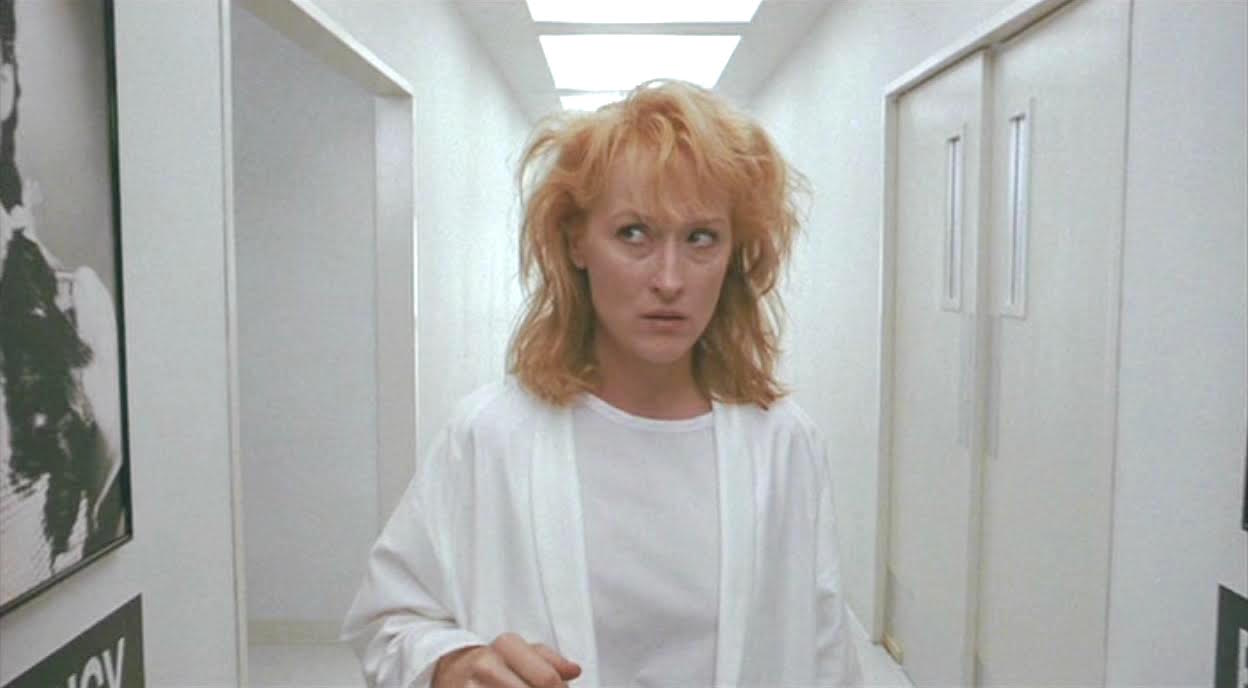
04. Postcards from the Edge (1990)
“Suzanne Vale is one of those rare pristine performances in which everything just works; from her expert comedic timing to her barely-concealed sorrow to her vexed maternal relationship to those sublime musical numbers to her clever self-awareness that runs through this poignant and comic film, Streep’s performance is a marvel... [This] addict is atypically restrained, but notice how Streep’s oft-ridiculed penchant for small gestures (face touching, hair-playing, the way she ambles through some line-readings) gets reworked into Suzanne’s restless spirit, an ideal coalescence of actorly trademarks and character-specific details.”
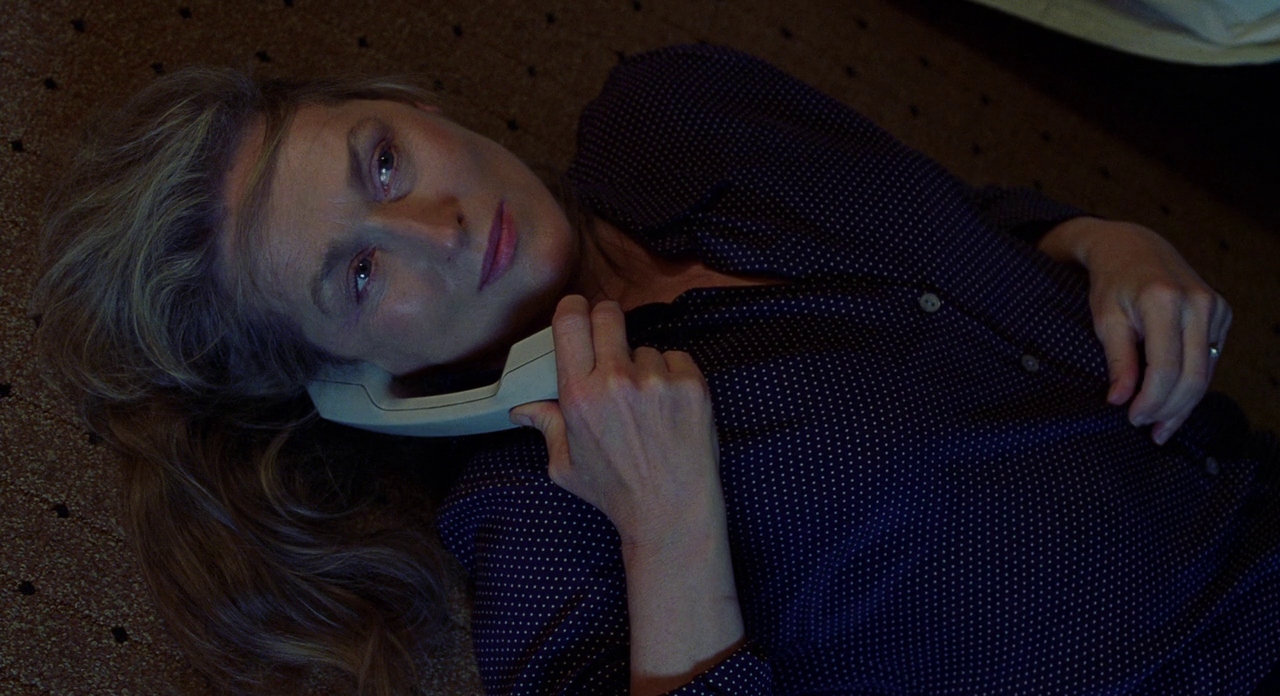
03. Adaptation (2002)
“John and I both frequently bemoan Streep’s seeming disinterest in pursuing collaborators as adventurous and risk-inclined as Jonze and Kaufman. I still feel that way, but, in truth, Streep’s performance in Adaptation. scales the type of sublime heights that we witness only once or twice, if at all, in the careers of most performers. It remains an inspired and still staggering pairing of character and interpreter, and the type of challenge seldom afforded to actresses in the latter stages of their stardom. Susan Orlean could have easily been a neurotic, erudite New York sophisticate with a clear-cut sense of discontentment, but Streep aims for the ineffable and achieves it in scene after scene. This is a feat deeply fitting for a performance characterized by a yearning for something indescribable and, finally, the unbearable agony that such impossible desires can allow to devour us whole. Streep’s wide eyes and slack jaw reflect our own reaction, which is the all-consuming wonder of watching a creation we could never have possibly envisioned yet is now suddenly present, walking, talking, and unraveling before us.”
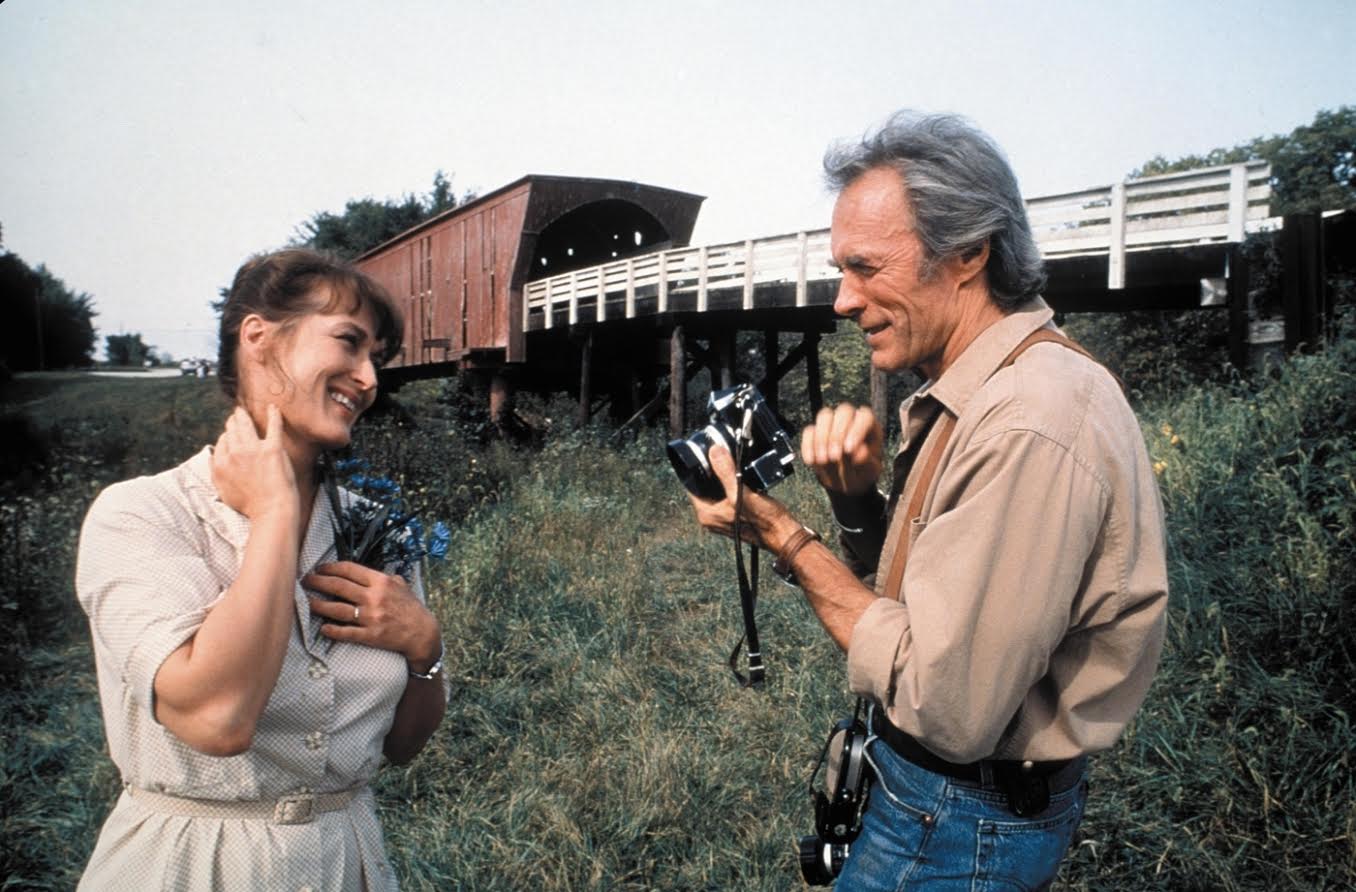
02. The Bridges of Madison County (1995)
“‘We are the choices that we have made,’ Francesca tells Robert near the end of their affair, her voice anguished but certain, breathing fresh air into Robert James Waller’s cornball clichés with the hard-earned wisdom of lived experience. Francesca doesn’t open the car door and join Robert in a life of ardor and adventure, which may be a failure of courage and nerve but not a failure of reason. Is it really any wonder that a number of Streep’s performances climax in the act of choosing? From Sophie’s Choice to Falling in Love to The Post to Francesca holding the key to her future in the palm of her hand and then slowly, sadly letting her love drive away, no other screen performer has ever confounded the border between audience and actor as completely as Streep. For me, this will always be the definitive Meryl choice. And sure, in this scene, she’s aided by her own superfluous but no less sorrowful voiceover and Lennie Niehaus’ soaring score, but the scene — and really the movie — lives or dies by what Streep does in the moment.”
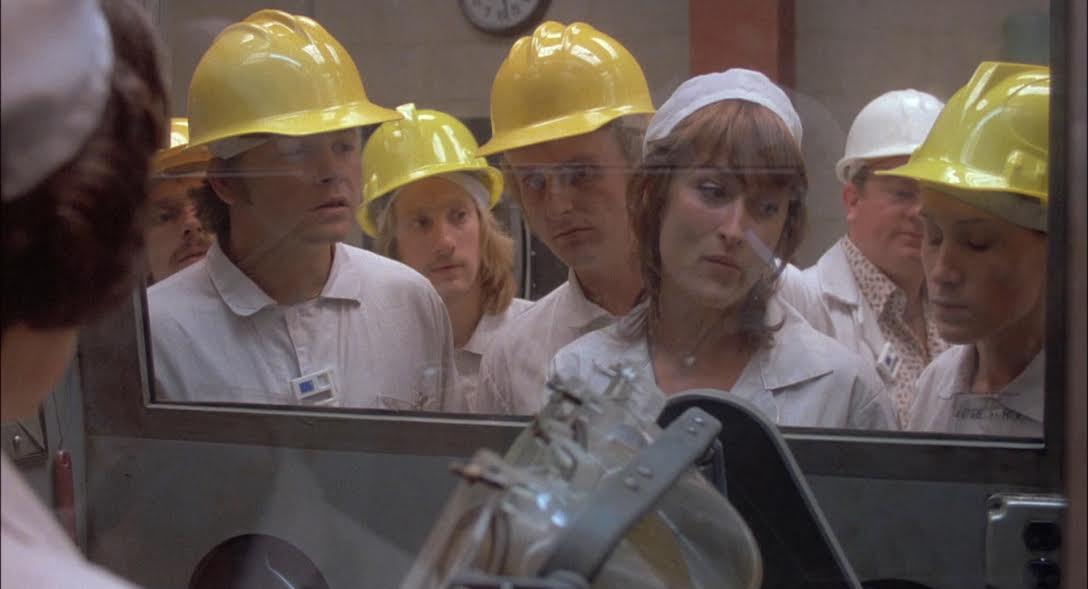
01. Silkwood (1983)
“Seeing Karen flee Bruce McGill as he tries to negotiate a settlement at the peak of her contagion breaks my heart just as much as Karen does waving her last goodbye to Drew. At the height of her misfortunes, and often as she experiences professional breakthroughs, Karen remains alone, propelled by some puzzling force into both danger and valor, compelled by an insatiable urge to fix, inquire, assist, confront, even as her personal life crumbles, even as she becomes aware of her own inferiority up against the corporation, even as she perturbs Gilda, isolates Dolly, and loses Drew. The community she tirelessly defends treats her as a tra itor. Just as she’s about to break a huge story, she crashes. Silkwood is so attuned to the personal costs of Karen’s professional ambitions, and yet because Streep plays Karen as a person and not a symbol, I’m still inspired by her moral compass, persistence, and dream of a better world, even as that optimism is tempered by innumerable setbacks. When I think of ‘the personal is political,’ I often think about Karen Silkwood, smoking, pissed, her skin burning, her mullet deflated, mad as hell and not willing to take it anymore.”
